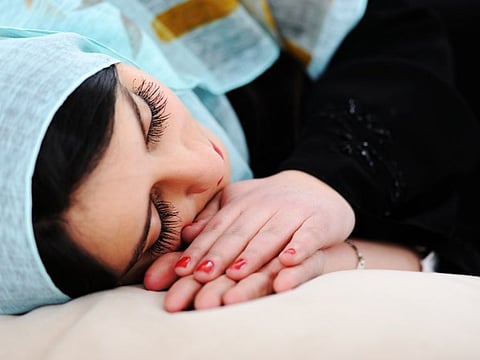Missing REM sleep during Ramadan? UAE doctors offer tips to ensure sleep hygiene during holy month
Sleep health awareness is all the more important with World Sleep Day falling in Ramadan

“As the circadian rhythm of the body gets disrupted, it results in mood swings and short-temperedness and headaches,” said Dr Raiza Hameed K H, specialist, Pulmonology, Aster Clinic, Bur Dubai.
She highlighted that there is a significant reduction in the amount of REM (Rapid Eye Movement) sleep during Ramadan which will again add to mood swings.
As the circadian rhythm of the body gets disrupted, it results in mood swings and short-temperedness and headaches.

“REM sleep refers to a stage of sleep which processes emotional memories and ensures our psychological health,” said Dr Hameed.
Shortened sleep cycles
“Opting for fat-free, moderate portions facilitates quicker digestion, enabling earlier sleep.”

Echoing the same, Dr Hameed suggested against feasting, including heavy, sugary foods at iftar.
Achieving deep rest ensures timely awakening for suhoor and the morning prayer, fostering a rejuvenating night’s sleep.
“Following suhoor, a light to moderate meal encourages a brief power nap before embarking on the day’s activities. This balanced approach facilitates spiritual devotion while navigating the demands of modern life,” said Dr Sundaram.
Dr Hameed revealed that elderly people are more prone to have insomnia during Ramadan.
During this time, she highlighted that it becomes the duty of those around them to provide support.
World Sleep Day
Doctors believe sleep health awareness is all the more important now with the World Sleep Day falling during Ramadan this year. Observed on March 15, the day is celebrated to raise awareness about the importance of having a proper shut-eye on a daily basis.
Since obesity is the main cause, patients with mild to moderate sleep apnoea can try to achieve an ideal body weight with proper diet and exercise thereby helping with sleep apnoea. Ramadan is the perfect time to start healthy habits like this




